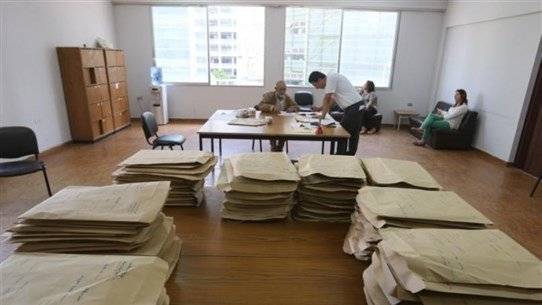Public sector employees have not yet felt the seriousness of suddenly having their monthly salaries cut. Many believe that salaries are the last fig leaf covering the state, and halting them will not be a joke, especially since they are particularly linked to military funds. They finally feel assured that at least July's salaries will be secured, reduced to counting the days until the payments are processed in the Ministry of Finance's Accounts Department, which requires two weeks, according to a statement from the department's employees. But what will teachers, employees, and military personnel do until payday, and how will they manage their affairs and prioritize their needs?
### Fear of Prices
Maryam, a public secondary school teacher, seemed to have been waiting for our call to express her anger about her life and her family's condition. "With or without a salary, we are drowning in debt, although we have cut back on many needs and details." She says there is great anger within her, and she has developed a phobia of prices and expenses, no longer daring to take her children to grocery stores for fear of not being able to buy what they desire. She also avoids pharmacies to escape the shock of rapidly rising medication prices, buying her necessities on the way home from school while making sure not to run additional errands to save on fuel costs. She insists she has never received any incentives ($90) or social assistance (half a salary) and doesn’t understand why. She holds the association responsible for passing elections and official exams while ignoring the loss of teachers' rights, expressing astonishment at being accused of ruining education. Maryam is not the only employee who hasn’t received incentives from the donors; some employees received payments for January, February, March, or April this month, and some never receive anything. There remains a pressing and ongoing question: Where is the money allocated for incentives going if it is not disbursed?
Today, it pains the secondary school teacher to be looked upon with pity by others and to see her 25 years of teaching experience diminishing. "Is it possible that all these years of hard work can go to waste, that I can’t afford basic needs, and that my main prayer is not to fall ill?"
### Concern Over Health Exploitation
Her colleague Lina cannot comprehend that the state could deprive its employees of their salaries, a basic and inherent right that is supposed to be a red line. "As if it’s not enough for us to live in fear and the health and social exposure we are experiencing, we have been deprived of transportation allowances for six months." Concern has become a constant for the secondary school teacher since her father was diagnosed with cancer. As the primary breadwinner, she endures all types of health exploitation to secure tests, treatments, and health coverage differences from the State Employees’ Cooperative. Laboratories, as she stated, "ask us to account for the dollar exchange rate, and medication is no longer a priority for them; I preferred to throw a large bag of medicines in the trash rather than wait for help from the cooperative." She pointed out that she now waits for heavenly solutions after losing hope for earthly ones.
### Spending Savings
Nothing compels Claudine, an employee at the State Employees' Cooperative, to attend work except for a moral and humanitarian commitment to public sector employees awaiting the processing of their health assistance applications. Other than that, her salary (2,100,000 Lira) lasts her just over a week, as she needs at least half a can of gasoline for daily commutes, noting that she only works two or three days a week with great difficulty. She states, "We live in scarcity and deprivation, and I have spent all my savings on daily necessities like milk and diapers." Her colleague Tarek, who commutes from Shihim to Beirut, relies on selling jewelry to meet his needs. "We have been selling my wife's gold for six months; there’s nothing harder than hearing my son, who is only six, say that the state has deprived us of this or that."
### The "Big Prison"
Jocelyn, an employee at the Ministry of Interior, could not hold back her tears while discussing the "big prison" in which employees live. She says, "In a small prison, inmates receive food and drink. However, we employees have become impoverished. We have become the focus of everyone. Our salaries have dropped from $1,500 to $70. Our children have forgotten what fruits and chocolates look like. We don’t know if we will be able to educate them in the next academic year. They have burned our hopes and destroyed our future." Jocelyn relays what one of the military personnel told her during a parliamentary election she attended: "Continue your strike and create pressure, and don’t pay us our salaries until we have an excuse to not go to our workplace." It pains the employee that the strike does not yield results. "They pressure us to attend under the pretext of serving citizens and processing their applications while no one cares about us or our children." She is also upset that "public administration employees are viewed as all being corrupt, while the reality is different, even if we do not deny that corruption exists." She seems convinced that "there is no solution except for the media to pay attention to us and turn our strike and our issue into a matter of public opinion."




